"My ADHD is my professional strength"
Nov 23, 2020
6 mins
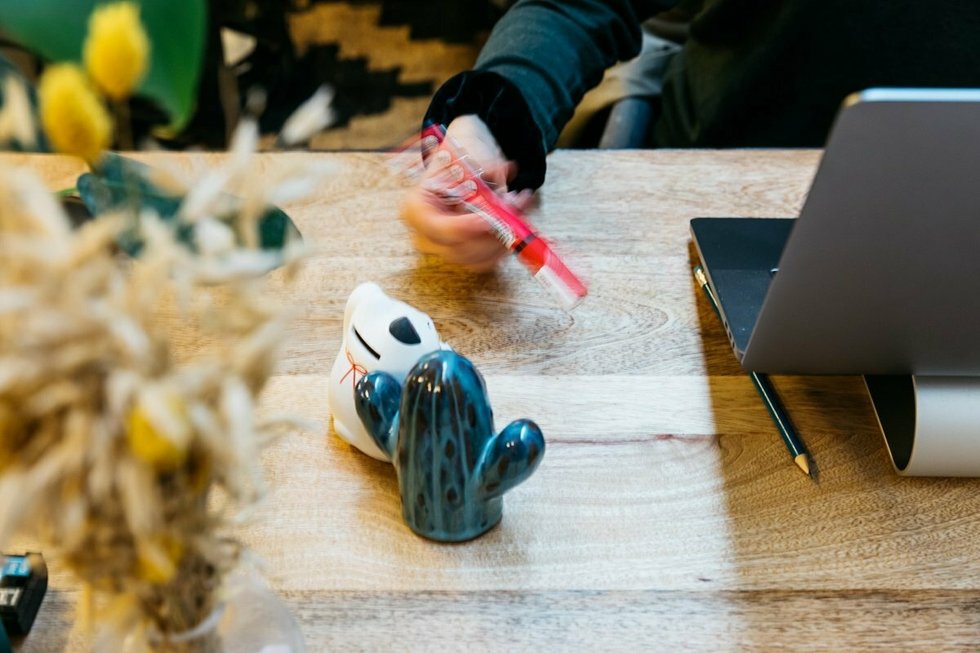

Journaliste @Welcome to the jungle
“When I was little, my parents found me boisterous and exhausting,” said Mickaël, a 36-year-old UX designer at Ubisoft, a video game company. He has attention deficit hyperactivity disorder (ADHD) and, although this neurodevelopmental disorder is often associated with fidgety children who are easily distracted, some individuals are not diagnosed until adulthood. ADHD can be particularly tough when studying or pursuing a career, as individuals may experience extreme emotions, impatience, impulsive behavior, and frequent forgetfulness. In other words, their behavior could be challenging for both colleagues and managers. Yet this cognitive disorder also has some great qualities such as empathy and creativity. We spoke to Mickaël about his professional journey and discovered how he turned a weakness into a strength. These are his responses.
Hard times at school
Many people with ADHD have had symptoms since early childhood, though they may not get a diagnosis until they reach adulthood. It was hardest for me when I was at school. Unable to sit still for long stretches of time, I was always touching my stuff and was distracted, impatient, and talkative. For instance, I couldn’t put my hand up and wait to be called on—I had to shout out my answer to the teachers. I had the unfortunate habit of butting in, which I haven’t outgrown [He laughs]. My main problems were with paying attention and listening. Well, that was especially true for subjects I wasn’t interested in. I was extremely bad at maths. I still have horrible memories of literally banging my head against the desk because it was so confusing. It caused me a great deal of suffering, especially when I saw that the other students understood it. Unfortunately, kids with ADHD experience a lot of setbacks at school. What’s more, always being behind the rest of the class takes a psychological toll.
It wasn’t all bad. I excelled in creative subjects such as literature and visual arts. One of the peculiarities of ADHD is that you can only really concentrate on things you find interesting. Although the condition is an obstacle at first, it can also be the driving force that helps you to focus deeply on whatever you’re doing. You then become deeply involved and highly efficient, perhaps even more than neurotypical people.
Capitalizing on my good grades in those subjects, I got a literary Baccalaureate [equivalent to the SATs and ACTs but specializing in literature] qualification but didn’t finish off my visual arts degree because, for me, the courses weren’t very stimulating. Yes, that’s another thing that comes with ADHD: impulsivity. I can drop everything overnight, even if it’s important. In fact, I have the constant need to feel passionate about whatever I’m doing to make it work. But even without a degree, I got my first role in graphic design thanks to my portfolio. After that, I worked my way up to becoming a creative director in web design. During this time, I was researching ADHD and started the process to get tested by neuropsychologists. It was such a relief when I got my diagnosis. I finally understood why my reactions could sometimes be so intense and over the top. I mean, I admit that I’m hypersensitive and can have a short fuse. There have been so many times when a mere trifle has turned into something worthy of a soap opera. It’s hard for me and those around me, but I can assure you I’m not just throwing a tantrum. When I get carried away by my emotions, I’m genuinely and deeply sad—I’m not faking it. If I’d been diagnosed when I was younger, I’m sure it would have helped me to accept myself more and have better self-esteem. But, never mind, now my demons have a name and I can fight them. More than anything, I no longer feel the overwhelming isolation that I felt at school.
Getting symptoms under control
In the workplace, the fact that I’m highly social means I get on well with my colleagues and managers. Even if I get carried away at times, I’ve always made up for it with my gift of the gab and sense of humor. And I’ve developed other ways of compensating. For example, if I disagree with someone at work, instead of talking to them straight away, I write an email but hold off sending it. Writing things down lets me vent all the anger I’m feeling at that moment. And then, when I read it again the next day, I think to myself: “Phew, it’s still in my drafts!” and I delete it. When I feel a strong emotion, it takes precedence over everything else and I need to express it. With this method, I’ve found an outlet that doesn’t upset anyone.
With ADHD, you tend to keep forgetting the same things or making the same mistakes. In primary school, for instance, I once forgot my coat every day for a month in the middle of winter. I’d come back home in a jumper and, no matter how many times my mother lectured me, I’d do it all over again the next day. My brain is in a state of cognitive overload, which means it’s processing too much information at the same time and it’s a mess. To cope professionally, I must categorize and prioritize any information I receive. That’s simple—I write everything down. I have a notebook for all my new ideas and a “to-do list” on my phone. I record every appointment in several calendars as well and my desk is always spotless. This arrangement works well, but the extra mental workload can be exhausting. I often tell colleagues: “Don’t ask me anything after 5 pm!” However, I’m great at prioritizing information and that can be very useful.
Turning a weakness into a strength
I’d always loved video games, so when I turned 30, I decided to turn my hobby into my job and embarked on a new career. After doing an accelerated master’s degree—sweet revenge for the little boy I was and who was long considered “stupid”—I joined Ubisoft and am now a UX designer. My disability has turned out to be a superpower for this position. One of my roles involves organizing information and making it easy for players to understand. And for that, I can capitalize on—me! That’s because some amazing qualities come from having an overactive brain, such as a vivid imagination, quick wit (ideas come quickly in my head!), and great empathy. When it comes to creating game systems for other players, I have one clear advantage in that I’m good at putting myself in their shoes and looking at the big picture. For instance, I can see right away if there is some cognitive overload happening on screen that might prevent the players from concentrating. In the end, my difference has been a major bonus.
Embracing my condition
Little by little, as I was thriving in my job and coming up with ideas that won my team’s support, I became more confident and found the courage to talk about it. While I embrace my condition today, that wasn’t always the case—especially at work. The worst part is when you’re looking for a job: you can’t tell recruiters you have a cognitive-related disability. They’ll say straight off that you won’t be efficient if you get hired. Which is not true! There are still so many preconceived ideas about disability in the professional world.
However, there are special accommodations and treatments for managing the symptoms of ADHD. I’ve been prescribed Ritalin in the past, but I don’t take it any longer. It’s a derivative of amphetamine and has some considerable side effects, including nausea, loss of appetite, headaches, and an increased heart rate. And this drug—it’s considered a narcotic—is pretty much a chemical straitjacket for my mind. It helps calm me down, but it also curbs my creativity. I’m no longer myself. And there are alternatives for channeling hyperactive energy. For my part, as I find sitting unbearable, my company has given me a standing desk so that I can work standing up. Since it arouses curiosity in an open-plan office, I’m able to broach the subject with those who may not know I have ADHD.
An invisible disability
Just like other cognitive differences such as dyslexia, dyspraxia, dyscalculia, and so on, ADHD is an invisible disability. People often say, “That’s insane… it doesn’t show!” which I naturally take as a compliment. But that doesn’t mean I face no limitations at work. When someone uses a wheelchair, you’re immediately aware of their disability. You won’t ask them to do something that is inconsistent with their abilities. It’s logical. But the problem for me is that mine doesn’t show. And even though I can adapt, it’s hard when I’m assigned tasks that might conflict with my ADHD, which still happens a lot. It’s a shortcoming of the professional world in general: recruiters want people who can do it all. Employees inevitably end up doing tasks they aren’t necessarily good at. For example, I often get asked to develop technical skills related to my role despite the fact that I’m more of a designer. It’s a shame—capitalizing on everyone’s individual strengths is way more interesting. For me, that’s what diversity in business is all about: capitalizing on everyone’s differences, on what makes us all unique. It’s a win-win situation.
In my case, I mean, just based on my experience, I’ve used my atypical career path to address two issues that are close to my heart: increased accessibility and inclusion in the world of video games. First of all, I make sure that the games are accessible to a variety of people regardless of their gender, sex, or physical or mental abilities. I know full well that video games can be a haven when the outside world is difficult. And, as a Ubisoft employee, I also work on raising awareness for cognitive disorders through articles, speeches, and events. Because even though people with disabilities must constantly adapt to suit companies, I hope there will come a day when they won’t have to anymore. After all, our differences are what make us all unique.
Translated by Andrea Schwam
Photo: Welcome to the Jungle
Follow Welcome to the Jungle on Facebook, LinkedIn, and Instagram, and subscribe to our newsletter to get our latest articles every day!

More inspiration: Mental health
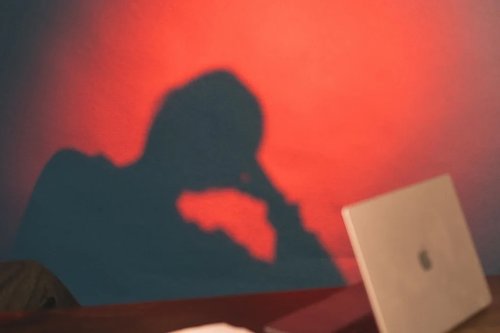
‘We need each other’: Monika Jiang on combating loneliness in hybrid work
Hybrid work offers flexibility but can leave us feeling disconnected. Monika Jiang explores how we can rebuild workplace connections.
Dec 19, 2024
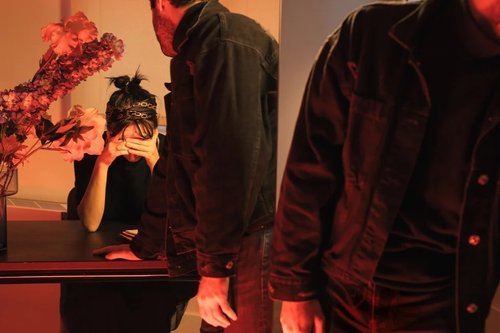
Struggling at work? Here are 3 steps to rebuilding your self-esteem
Low on confidence? Learn how reflection, recharging, and refocusing can help you rebuild self-esteem and thrive professionally.
Nov 27, 2024
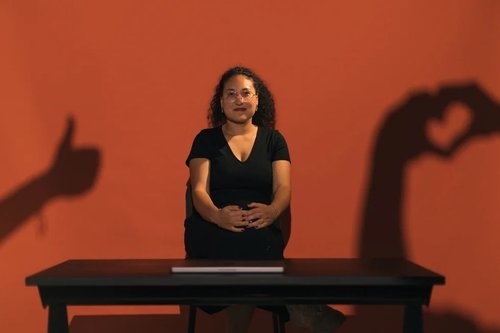
10 ways to beat the Sunday Scaries
Even people who love their jobs can experience the Sunday Scaries. Psychologist Karen Doll offers several strategies to help manage and overcome it.
Sep 12, 2024
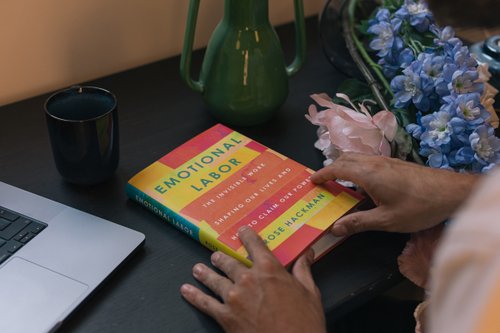
Unpacking the burden of emotional labor
Rose Hackman’s "Emotional Labor" reveals how managing emotions impacts everyone, especially women and minorities.
Aug 08, 2024

Is financial anxiety harming your productivity?
Feeling overwhelmed by financial anxiety? You're not alone. Discover practical steps and expert advice to regain control of your work-life balance.
Jul 31, 2024
The newsletter that does the job
Want to keep up with the latest articles? Twice a week you can receive stories, jobs, and tips in your inbox.

Looking for your next job?
Over 200,000 people have found a job with Welcome to the Jungle.
Explore jobs